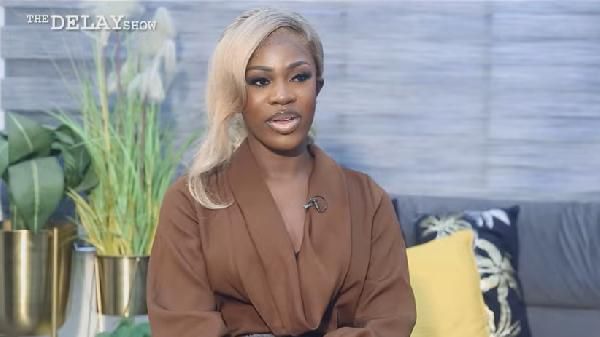You can't tell me what to do; Delay replies critics over Dulcie Boateng's interview
)
The comments came after Delay's viral interview with 'Snapchat slay queen' Dulcie Boateng. Critiques argued that such interviews lowered the standards of 'The Delay Show,' which has previously hosted distinguished figures, including seasoned politicians.
Responding to the criticism, Delay defended her guest selection process, asserting her autonomy in running her program. She emphasized that no one dictates how she operates her show, dismissing attempts to influence her decisions regarding guests.

Addressing her critics directly, Delay said, "These days, you see and hear people, I mean just anybody on social media, advising me on how to run my show. They want to tell me who to invite and who not to. I want to speak on that issue. I want to tell such people that this is my office and that they cannot tell me what to do."
She continued, "Nobody is better than the other in this world. You can't tell me not to invite people who you think are unimportant to the show."
Asserting the equality of all individuals, Delay shared personal experiences of being marginalized, recalling instances from her time at Aburi Girls Senior High School, where she faced discrimination for hailing from Nkawkaw in the Eastern region.
"I remember when I was admitted to Aburi Girls. I was told I was from Nkawkaw, so I was tagged as a village girl. I was nearly not given the chance to be admitted among the people they thought were better than me. When I go to social gatherings like entertainment, I will always be sacked. Look at me now; I'm now the entertainment prefect," she recounted.
Despite facing rejection and derogatory labels, Delay recounted how she rose above societal expectations to become the 'entertainment prefect,' in Ghana highlighting the importance of equal opportunities for everyone.
She urged for fairness in granting opportunities, emphasizing that individuals shouldn't be dismissed based on preconceived notions, as one's potential may surprise others in the future. Hear more from her in the video below.
)
)
)
)
)
)
)
)
)
)
,fit(112:112))
)
,fit(112:112))
)
)
)